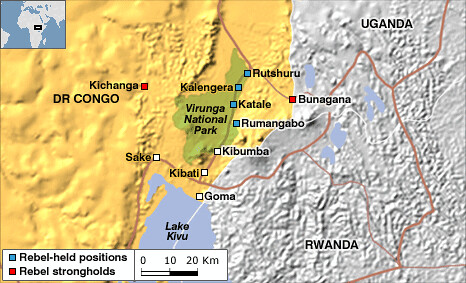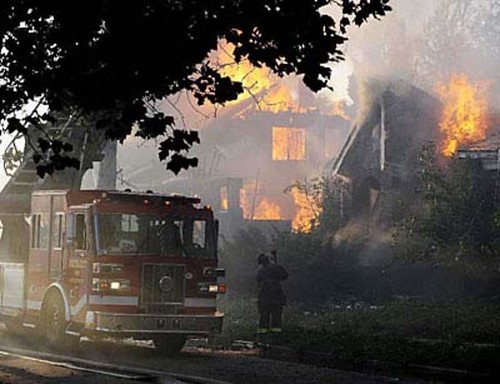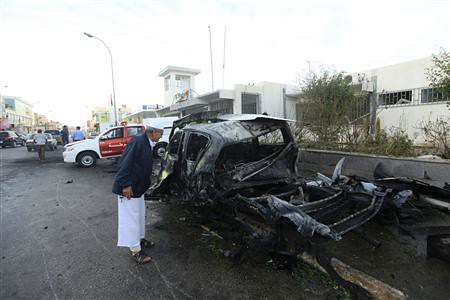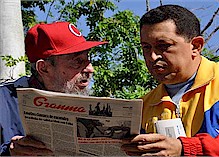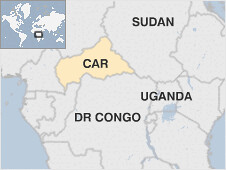Amai Tongo’s life of pain and tragedy
Sunday, 30 December 2012 00:00
Zimbabwe Sunday Mail
Last week, Ms Angeline Kumbirai Tongogara known by many as Amai Tongo narrated in graphic details how she met Cde Josiah Magama Tongogara and they went on to have four children.
This week, Amai Tongo tells our Assistant Editor Munyaradzi Huni (MH) how her husband was severely tortured by the Zambian government following chairman Chitepo’s death, she tells the bone-chilling story of how her third born son Bvumai could have saved General Tongogara from death and how President Mugabe broke the tragic news about her husband’s death in 1979.
This is the touching and painful story of a strong woman who lived from one tragedy to the other.
MH: Now we know how you met the war commander with rolling eyes and how you went on to live with him. Let’s talk a bit about the death of chairman Chitepo because it really affected your family. When this happened, where were you?
Mai Tongo: I was in Lusaka. That’s 1975. The death was announced on the Zambian radio. So we went to Chilenje for a week for the funeral. But there were these squabbles between the Karangas and the Manyikas.
There were two camps at the funeral. The other camp, the funeral was held at Sanyanga’s house and the other one was for us the povho in Chilenje.
MH: Who was leading this other camp in Sanyanga?
Mai Tongo: There was Sanyanga, he is the one who provided the house for the funeral.
There were also people like Mutambanengwe, Noel Mukono, Santana and others.
They were saying they were the Manyikas and they were not happy that Cde Tongo was elected as the Chief of Defence.
Noel Mukono was the Chief of Defence before the elections that ushered in Cde Tongo. They felt that the Karangas were hijacking the struggle.
MH: How did Cde Tongo receive the news about Cde Chitepo’s death?
Mai Tongo: He was sad. Very, very sad. He went to the funeral in this other camp of ours where there was the povho. He used to say imperialists have killed our chairman.
MH: So you went to chairman Chitepo’s funeral and after that several Zanu leaders including Cde Tongo were arrested?
Mai Tongo: When we went for the funeral, the security people warned us that you must be careful now because the Zambian government is going to arrest everybody. So from the graveyard, I went home. As we had been told that the Zambian government was going to arrest the Zanu leaders, when I got home, I took some guns that were in the house, dug a pit in the chicken run and put the guns there.
When Zambian police came, they started searching the house and they could not find anything. I knew that the Zambian police would have taken the guns if they found them inside the house. These guns were important for us to carry on the struggle. The Zambian police left me at the house but they took all the comrades I was staying with.
MH: So how was Cde Tongo arrested?
Mai Tongo: On the day Cde Chitepo was buried, all the people in Dare reChimurenga had their meeting and Cde Tongo was told to go to Chifombo. So he was not arrested together with the others. For him to be arrested, Kaunda had to go through President Machel. He requested that Cde Tongo should come back to Zambia. So President Machel asked Cde Tongo to come back.
I don’t know whether he knew that he was going to be arrested. When he came back he didn’t come to the house. It took me some two to three weeks before I could even see him. I only heard news that he had come from Mozambique and he was in jail.
The first time I was allowed to see him, he could not walk. All his nails were out, his legs were swollen and they looked like something else. He was beaten. If it was a woman I would say she was battered. He was beaten, beaten, beaten badly.
MH: And so when you met him for the first time, what did he say?
Mai Tongo: He just said politics. He had to whisper that to me because the authorities were standing close by. I had this baby Bvumai so I gave him the baby and that’s when he whispered “politics.” So what I went on to do was that if he wanted something, he would write a letter and put it in the baby’s napkin.
It was the same thing if say Cde Kombayi wanted something, he would write a letter and I would put it in the napkin so that Cde Tongo could take it from there. Most of his letters were addressed to Cde Patrick Kombayi. Cde Kombayi worked so hard during those difficult times.
MH: So Bvumai became sort of a mujiba at such a tender age?
Mai Tongo: (laughs) You could say that. We made him a mujiba at that young age because he didn’t know what he was doing.
MH: How did you feel seeing your husband in that state? Didn’t you feel that maybe this struggle was not worth it?
Mai Tongo: It was terrible. I could not even cry because someone was standing there holding a gun. I could not ask questions and could not say anything. It was just eyes talking. This really pained me, but I could not abandon the struggle. It was too late for that.
Every day I would say this is a phase and it will pass. As long as God is with us and no one is dead, it will pass. We could not even bring them anything in the jail.
I would go and see him maybe after a week and most of the days we would be told “no, you are not seeing them today” and we would go back home. When we were allowed in, we were allowed to see them for a very few minutes, about five minutes.
MH: So he was in detention for how long?
Mai Tongo: I think almost a year because the war stopped for a year. Before he was released there was this court case and before this court case there was this Commission of Inquiry into the death of Chitepo which was set by the Zambian Government.
Ms Mtetwa and Cde Simbi Mubako were some of the lawyers who represented them.
While this was happening, they were taken to Mpima Prison which is in Kabwe where we could go and see them freely.
We could bring them food there. This is where we used to visit them with Cde Muzenda. Cde Kombayi had bought a car for Cde Muzenda at that time.
MH: When you look back, are you bitter at what the Zambian government did to your husband?
Mai Tongo: Of course I am bitter. Who wouldn’t be bitter? The Zambian government was very, very unfair . . . President Kaunda at first he was alright but during this time, no, no he was just too unfair to Zanu. He was just trying to stop the war but he failed anyway. I am very, very sure that if these comrades had not been arrested, Zimbabwe would have achieved its independence much, much earlier.
MH: How was Cde Tongo released?
Mai Tongo: They went to court and for some days the court went on and on. We were then told that they had been acquitted. I fainted. I couldn’t believe it. When l saw how they had tortured him saying he was the one who had killed Chitepo and now they let the law take its course, and the law says he is not guilty, I couldn’t believe it. I just fainted.
When he was released, Cde Tongo was happy because he had not killed Cde Chitepo. I remember he was talking I think it was David Martin, he said I have been cleared by the Zambian courts, but I want to be cleared by Zimbabweans because I did not kill Chitepo.
MH: After his release, did he show that this was haunting him because some people were blaming him?
Mai Tongo: He was not happy at all. It was worrying him very much.
MH: We are talking about an icon here. Tell us, how do you console such a man when he is feeling low?
Mai Tongo: (pauses and takes a deep breath) You know what happens, kana vanhu muri mumbaso, I would tell him, you see people are blaming you but you didn’t kill Chitepo. Time will tell. As long as you are convinced yourself that you did not kill him, time will tell. Chokwadi chichabuda pachena kuti Chitepo akaurayiwa nani. So move on and continue with the war until you liberate Zimbabwe. As for the kids, this situation was really bad. They could not understand why their father was in jail.
MH: Let’s talk a bit about Cde Tongo when he went to the war front. How did that impact on the family?
Mai Tongo: It was difficult during the first days but as time went on, I knew he was going and coming back. I kept myself busy at work so that I could not think about the war that much.
MH: When he came back did he show you that he was enjoying the war?
Mai Tongo: Of course. Even while at the war front he would come across an animal, kill it and bring nyama yakaomeswa kumba.
MH: This general was spoiling you?
Mai Tongo: Why not? I ate lots of dried meat maybe ndakatodyiswa mutupo wangu.
MH: How were you explaining to the kids that daddy has gone to war?
Mai Tongo: Most of the time I would just tell the kids that baba vaenda kubasa vachadzoka.
When he went to war I would say “Mbuya Nehanda ndimi makati mapfupa angu achamuka. Vana venyu varikuedza kuti mapfupa enyu amuke, chivatungamirirai. This was my prayer. When he came from the war front, he would not talk much about the war. He would talk only about the light stuff but he would not say much. It was even difficult to see whether they were winning at the war front.
MH: We hear that during the liberation struggle, you looked after some children who belonged to other comrades. Tell us about this role and why you had to do this?
Mai Tongo: What happened was that, when some comrades were injured at the war front, they would be brought to my house. I would then take the injured comrades to hospital and monitor whether they were receiving good treatment because that’s where I was working.
It so happened that among those who were brought to my house, Teurai (VP Mujuru) was one of them. That’s when I started staying with Teurai.
While staying with her, Cde Tongo and Cde Rex would come to the house. That’s when and how Teurai met Rex at my house. Vatsvetsvana vadanana, havo vazoenda.
So when they went, they had their child Kumbirai. Teurai actually said we want to name this child after you. So things were not well in Chimoio, so ndakaunzirwa vana vanoti Maidei naCharity together with Kumbirai. All these were Mujuru’s children. Kumbirai was two months old when they were brought to my house. I was still in Zambia then as I was furthering my nursing course while others were relocating to Mozambique. When I finished my course, that’s when I moved to Maputo.
MH: So you moved over to Maputo with all these children?
Mai Tongo: Yes, I moved to Maputo with my seven children. There was Hondo, Tichafa, Bvumai, Maidei, Charity, Kumbirai and Sukai akanga ari mwana wababamukuru who is now at the Anti-Corruption Commission. This was my family.
MH: People would want to know, what little things, some would say what silly little things would you do with Cde Tongo away from politics and away from the public?
Mai Tongo: Taivharirana mumba totamba macards. He used to call it casino. He would win most of the times. Sometimes we would take the kids and go to the farms where workers would be milking cows. Cde Tongo used to say I want my kids to grow up knowing all these things. So we would go there as a family and see how it’s done. He would teach his children how to milk the cows.
If there were functions somewhere, we would go tongokwana-kwanawo so. Tichienda takangopakatirana. At home, our kids were not allowed to speak Nyanja while inside the house because he would say kana tazoenda kumusha, vana mbuya havagone kuverenga chirungu so inside the house the children spoke in Shona.
MH: What was Cde Tongo’s favourite music?
Mai Tongo: Besides masongs echimurenga, he liked Dobby Gray.
MH: Was he a good dancer?
Mai Tongo: Oohh yes, kwazvo. He was a good dancer. Taingobatana tozeya paya.
MH: Which Chimurenga song or songs did he used to like a lot?
Mai Tongo: He liked a lot the song “Nyika yedu yeZimbabwe ndimo matakazvarirwa.” He was also a good singer. While he was young, he was in the school choir.
MH: There were a number of massacres that took place during the liberation struggle that were committed by the Smith regime like Chimoio, Nyadzonia massacres. Where were you when these massacres happened?
Mai Tongo: I was still in Lusaka but before the Chimoio attack, Cde Tongo had an accident when he hit a buffalo. When I was told this, I came from Lusaka and went to Chimoio to see him. I stayed in Chimoio and when it was time for me to go back to work, I went back to Zambia. He also had heard information that Smith was coming to bomb the place where they wanted to have a meeting. That meeting was moved to Maputo. Four days after I left, that’s when the Chimoio attack happened.
I was really, really hurt. Pane mwana waVP Mujuru ainzi Theresa who I had looked after while in Zambia. She was killed at Chimoio.
MH: Let’s turn to the Lancaster House talks. Did you accompany your husband?
Mai Tongo: No, I accompanied him to the Geneva conference. While going to Geneva, he was not optimistic that they would achieve anything. He was saying Smith haasati aibva saka hatina chatinonobura ikoko. That was the time he had just come out of jail in Zambia.
I had to cut short my trip to Geneva because I was rushing to Zambia to start my nursing course that I spoke about earlier. So I came back from Geneva with Cde Mutumbuka.
We passed through UK. Cde Tongo and the Zanu delegation later followed and he proceeded straight to Mozambique after passing through Zambia.
MH: You said you didn’t go to Lancaster. You were saying you were now heavily pregnant?
Mai Tongo: Yes, I was heavily pregnant so I couldn’t go. While Cde Tongo was in Lancaster we used to communicate a lot. He would send me money and say go to the diplomatic shop that was in Maputo. I would go there to buy what I wanted as a pregnant woman.
MH: So he comes back from Lancaster . . .
Mai Tongo: He comes back from Lancaster, came home and he told me he was the one going with the first group of comrades home to Zimbabwe. After this they went for their meetings. When he came back he said chindigadziriraiwo mbuva nekuti ini handichaenda kumusha. I am going to the camps to tell the comrades that the war is over.
He said he wanted to also tell the comrades what had happened during the Lancaster talks.
He took all his suits and said please take these suits to the dry cleaner so that kana ndaakuenda kumusha ndoenda nehembe dzakachena. Ndiko kuoneka kwavakaita.
MH: What was his mood as he was going? Did you have a feeling that he is going and you would never see him again?
Mai Tongo: I did not have that feeling but his son, Bvumai, as he was bidding us farewell, Bvumai akachema. He cried saying handisikuda kuda kuti muende. He asked why, but Bvumai said I don’t want you to go because if you go you won’t come back.
He just brushed it aside saying aahh nhai Mai Hondo can you hear what this child is saying?
He laughed and he went away.
MH: What were his last words to you?
Mai Tongo: (tears rolling down her eyes) He just said tokuonai tadzoka.
MH: So he went away. How did the news that he had passed on reach to you? How did you know he had died?
Mai Tongo: (sobbing uncontrollably) When he went away, we were taken to the airport to see Cde Rex who was leading the first group to come back to Zimbabwe. From the airport I was driven back home. While at home, VaMuzenda arrived. He sat there and started talking tunyaya twavaisingambotaura.
He asked about the kids and so on. While he was still talking Teurai arrived and started talking about different issues. After a few minutes, President Mugabe arrived. That’s when my heart started beating. This was unusual. After a while, President Mugabe broke the news to me.
MH: What exactly did he say?
Mai Tongo: He said haaah, mai Hondo tine hurombo zvikuru eehhh, Cde Tongo vaita tsaona nemotokari asi vabva vatsakatika. (deep breath, tears still rolling down her eyes) I don’t know whether he finished what he wanted to say or what but I fainted only to wake up with my whole body wet. People had to pour water on me after I fainted.(long and deep pause) I could not even understand what was going on. Nothing made sense. (long pause, sobbing)
MH: So when you gained composure, what went through your mind?
Mai Tongo: I just said to myself dai vakaterera zvakataurwa nemwana. Handiti kunonzi vana vadiki vanoshopera. Maybe he would be alive today. (pause) The person who looked after me during those extremely hard times was Suzan Rutanhire. (Cde George Rutanhire’s wife who he is still married to up to this day) She would feed me and bath me.
MH: Who told the kids about this tragedy?
Mai Tongo: The kids just came rushing to me when they heard me crying. They could not understand what was going on. I was about six months pregnant so you can imagine. (tears still rolling down her eyes)
MH: Where you later told in detail what had actually happened?
Mai Tongo: I was just told he was involved in an accident. His usual driver, the one I knew, didn’t go with him on this day. He went with another driver. His secretary was Oppah Muchinguri and she was in the same car with him when the accident happened. I was told that he was the only one who had died.
MH: After being told that he had passed away, what happened next?
Mai Tongo: I was never taken to the accident scene up to this day. They said no one was allowed to go there because Samora had given orders that no one should ever drive again.
At the hospital, I didn’t see much. When I went to the mortuary, I was told that there were some undertakers who had been hired from home to embalm his body. So when I got to the mortuary, ndakanga ndakashinga ndichida kuona kuti chii. (pause, still sobbing) I removed the cloth starting from the head and I saw the wounds, but as I was about to pull away the whole cloth so that I could see the whole body, Josiah Tungamirai came and said why are you letting her touch this body yaiswa mishonga and so on.
Ndakabva ndabatiranwa hameno kwandakanoiswa ndichibva ndabaiwa injection. I passed out. I don’t know what happened from there. When I woke up, I was now kumba kwaPresident. Thats when I saw Mai Sally Mugabe. She consoled me and I said please take me to my house.They said I could not go to my house because there were too many people there and this would not be good for me as a pregnant woman. I said those people vakatowunganira ini because ndini ndafirwa.
I was later taken to my house. I still don’t know what that injection was meant to do. No one explained anything to me.
MH: So when you got home, what happened?
Mai Tongo: I joined others who were there. I was told that arrangements were being made to bring over our relatives and baba mukuru came with his wife from Zambia. When they arrived, they again started torturing me.
MH: What do you mean?
Mai Tongo: When they arrived, like I told you, Suzan was the one who was looking after me. So when they arrived they were not allowing me to go to my bedroom. They took keys to my bedroom. If I wanted anything from the bedroom, Suzan had to go and ask them for permission to get anything from my bedroom.
Ndakangogara zvangu paya vachiita zvavaiita. Kwakazonzi nguva yekurongedza mbatya yasvika saka mudzimai ngaachinotiratidza mbatya dzacho. Ndikati ahh, vane makey avo ndivo mudzimai wacho ngavaende vanokuratidzai. They took away my keys saying ndinozorasa or kutengesa mbatya dzacho saka ngavakuratidzei.
MH: Did this treatment make you angry?
Mai Tongo: I was very angry. I did not even ask them why they were doing this. I had a much bigger problem of losing a husband. I was also worried about mwana akanga ari mudumbu. (pause, tears rolling down the eyes)
Can you imagine we used to talk about Zimbabwe where there is milk and honey with my husband and now just as we were about to get into that Zimbabwe, he was gone. Can you imagine the pain? Cde Tongo was not buried in Mozambique. After the body was embalmed, it was put in a mortuary in Maputo.
Independence Day had been set for 18 April and so very few people were left in Mozambique manning the Zanu offices. While they were manning the offices, I was looking after my husband’s body. It was agreed that Cde Tongo would be buried in Zimbabwe.
So as I remained behind, Cde Rex Nhongo came to Zimbabwe with my kids so that they could start going to school. During those days my kids were staying with Cde Rex and Teurai.
MH: So Cde Tongo was later buried in independent Zimbabwe?
Mai Tongo: After independence, I think things were not yet in order as people who had just got into Government, so I had to leave my husband’s body in Maputo and came to Harare as preparations for the burial were being finalised. I was staying in Belvedere waiting for the burial that was set for August.
Later we were taken back to Mozambique to collect the body but still so many things were not yet in order. Cde Tongo’s body spent about ten minutes at the house where I was staying and after that the body was taken to Stoddart Hall in Mbare where it spent a night. The next day Cde Tongo was buried at the National Heroes Acre.
MH: We hear that after some time, his body was exhumed and buried at another place. How did this happen?
Mai Tongo: After some time, I was told that the place where Cde Tongo, Cde Chitepo and Cde Jason Moyo were buried was too close to the road that people use while going up the national shrine so they were to be moved to another secure place. So I was asked to go and inform Cde Tongo’s parents about this and I said ahh, veduwe ko mandiomesera kudaro zvaita sei? Is it my responsibility to do that or it’s the government’s responsibility?
I said once you tell them, I will then join them to come for the reburial. I am told that the parents were later taken from their rural home and they were booked in a hotel.
As for me, no one remembered me when the reburial took place. The reburial was done and my husband was reburied where he is now in my absence. There was no one for me to ask why this was done just like up to now I haven’t been to the place where my husband had the accident. (still sobbing) Who was I supposed to go and ask all these troubling questions?
MH: How did this death affect you, considering that you were pregnant and you were about to get into a free Zimbabwe?
Mai Tongo: I really got sick. I actually thought I was going to give birth to a premature baby.
This really troubled me. What really, really troubled me when we got into independent Zimbabwe, those who used to be my friends, no one came to be with me at this trying time.
No one could remember kuti kuna Mai Hondo. This coupled with the fact that the children were supposed to go to school and I didn’t have school fees. It really was a tough, rough and very painful time.
MH: When you look back at the death of Cde Tongo, who do you blame for the death?
Mai Tongo: I blame God because he allowed whatever took place to happen. I was not there so I can’t lift my finger and say I blame so and so. I only blame God because whatever happened, he allowed it.
MH: Now, after all these years, is there anything that is still haunting you about this death?
Mai Tongo: (pause and deep breath) Zvinhu zvinonetsa izvi mwanangu. Zverufu rwavo zvinotozobudawo mandiri when I die.
As long as I am alive, it still troubles me. Now these days when we are called for the heroes functions, I am expected to park my vehicle kure uko and walk a long distance to where we will be seated. That’s why now, I no longer attend those functions.
MH: Do you have some troubling unanswered questions?
Mai Tongo: When Cde Chitepo died, there is a book that was published showing who killed him. Why can’t this be done also for my husband? I really would want to die knowing how my husband died.
MH: We hear that after independence you were later given a rank in the army. How did this happen?
Mai Tongo: When we came from the struggle, I went home and stayed there for two months. I then later decided that I should go to work for my children. I went and spoke to vaMuzenda that I now want a job.
He said to me if you want to work, you go to hospital and apply to be a nurse there. I said really, zvakanaka. I didn’t want to go and work as a nurse because I had a young kid who needed my attention, especially during the night. So I later went to KG6 and spoke to Cde Felix Muchemwa. He was the director of medical services in the army. This was in 1981.
He knew me and so when I told him that I was looking for a job, he said you have gotten the job already. That’s how I got employed in the army first as a captain. I was later given the duty to head the department of nursing services. Later I applied to do a diploma in nursing administration at Parirenyatwa and got a place there. After finishing my diploma, that’s when I went to 5 Brigade for military training.
MH: When did you retire from the army and why?
Mai Tongo: I left the army on a very sad note. I was at home and I was called by Rex who asked me in his usual stammering voice whether I had read the paper. I had not yet seen the paper. So I later bought The Herald and it was reported that the army was saying there are some soldiers that had been retired from service and were being re-assigned to work at Parliament. There was Cde Maseko, Cde Mahlaba, myself and a fourth person I can’t remember his name. This was done without consulting me at all. So that’s how I left the army.
When I left the army I was now a Major. So when you retire the system in the army is that you are given one rank up so I became Lieutenant Colonel Tongogara on retirement.
MH: As we conclude this interview, can you briefly tell us how you would want people to remember Cde Tongo?
Mai Tongo: When a decision was taken to give war veterans those packages, I went and told the authorities that these financial packages, won’t help that much because people will spend them and forget about them. I said let’s get this money and equip the people so that they will be able to fend for themselves.
Cde Tongo used to discourage the giving out of hand-outs. He wanted people to be free to work on their own after being empowered and given knowledge like what is now happening through Indigenisation and economic emancipation. If these programmes are implemented and not end up as mere talk, I know that one of Cde Tongo’s objectives would have been fulfilled. As the wife of Cde Tongo and as the mother of his four children, my request is that please, please can you arrange for me to go and see where my husband died.
I want a plaque to be erected there and I will tell you what to write on that plaque because ndini muridzi wemurume. The history of Zimbabwe will be incomplete if people don’t know where this iconic general passed away.
Second point is that Cde Tongo died in a car accident, can you please go and tow that car so that we put it in our museum here.

